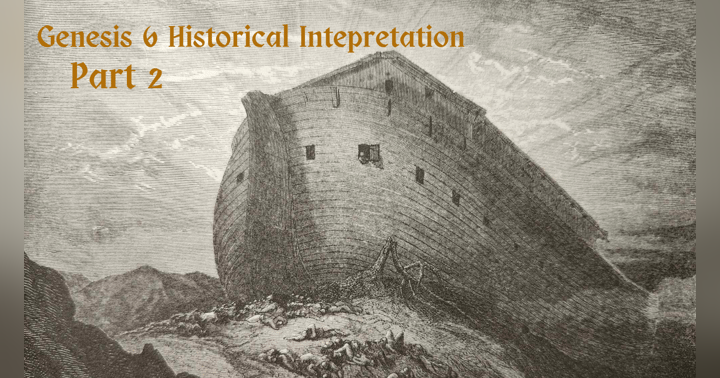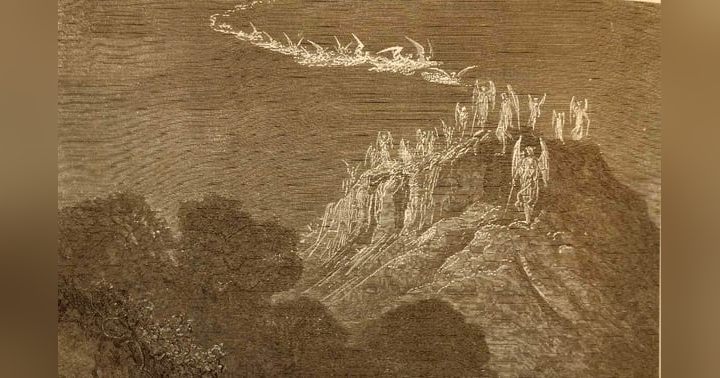Unveiling the Divine-Human Relationship: Can Humans be Elohim?
Introduction
In the realm of biblical scholarship, the Divine Council Worldview has stirred intriguing questions about the nature of the human-divine encounter. This immersive worldview invites us to explore the possibility that humans may have a profound kinship with the divine—a kinship that may even extend to the status of being considered "elohim." This blog post delves into this captivating question, examining biblical texts and scholarly perspectives to unravel the enigmatic relationship between humanity and the transcendent realm.
The Divine Council Worldview
The Divine Council Worldview emerged from ancient Near Eastern and biblical traditions, presenting a captivating perspective on the divine realm. It depicts a celestial assembly of divine beings, often referred to as the "sons of God" or "elohim," who interact with the human sphere and play an active role in shaping human affairs. This worldview challenges the traditional notion of a singular, omnipotent God and instead suggests a collaborative and multi-faceted divine realm.
Comparing Translations
A key aspect of exploring the Divine Council Worldview is examining the nuances of biblical translations. The choice of words and phrases can significantly impact our understanding of the human-divine relationship. For example, in Deuteronomy 32:8, some translations render the phrase "sons of God" as "sons of Israel," while others retain the original Hebrew term "bene elohim." This discrepancy highlights the complexities of translating ancient texts and underscores the importance of considering multiple perspectives.
The Question: Can Humans be Elohim?
The possibility that humans can be considered "elohim" raises profound questions about the nature of humanity itself. In the biblical text, the term "elohim" is typically used to refer to divine beings, yet there are instances where it may also apply to humans. Passages such as Psalm 82:6 and John 10:34 suggest that humans may bear a likeness to the divine, sharing in a measure of authority and responsibility.
Exploring 1 Corinthians 8:5
A particularly intriguing passage for exploring this question is 1 Corinthians 8:5, which states that "there are many 'so-called gods' and 'lords'—both in heaven and on earth." This verse raises the possibility that the term "elohim" may not be limited to divine beings but may also encompass various authorities and powers within both the heavenly and earthly realms.
Insights into the Human-Divine Encounter
Unveiling the true nature of the human-divine relationship requires a multifaceted approach, drawing upon biblical texts, anthropological studies, and historical accounts. Ancient Near Eastern myths and legends often depict humans interacting with divine beings, suggesting a fluidity between the human and divine spheres. Furthermore, cross-cultural comparisons reveal that many cultures have shared beliefs about the divine nature of humanity or the potential for humans to ascend to a divine-like status.
Unveiling the Divine-Human Relationship
The Divine Council Worldview offers a compelling framework for understanding the complex relationship between humanity and the divine. By examining biblical texts, comparing translations, and exploring scholarly perspectives, we gain a deeper appreciation of the multifaceted nature of the human-divine encounter. Whether or not humans can be considered "elohim" in the strict sense, it is clear that the ancient understanding of this relationship was far more nuanced and dynamic than often portrayed. This enigmatic kinship continues to captivate our imaginations and invites us to ponder the profound interconnectedness of all things.
Conclusion
In unraveling the Divine-Human Relationship, we embark on a journey into the profound mysteries of humanity's connection to the divine. The Divine Council Worldview challenges traditional notions and invites us to explore the possibility that humans may share in a divine nature. By delving into the complexities of biblical texts, comparing translations, and examining scholarly insights, we gain a deeper understanding of the ancient understanding of the human-divine encounter. This exploration not only sheds light on the past but also invites us to reflect on the nature of our own relationship with the transcendent realm, fostering a greater appreciation for the interconnectedness of all beings.
To delve further into this captivating topic, I invite you to listen to the related episode of the Genesis Marks the Spot Podcast: Divine Council Worldview: Comparing Translations with Mike Chu - Episode 069.








